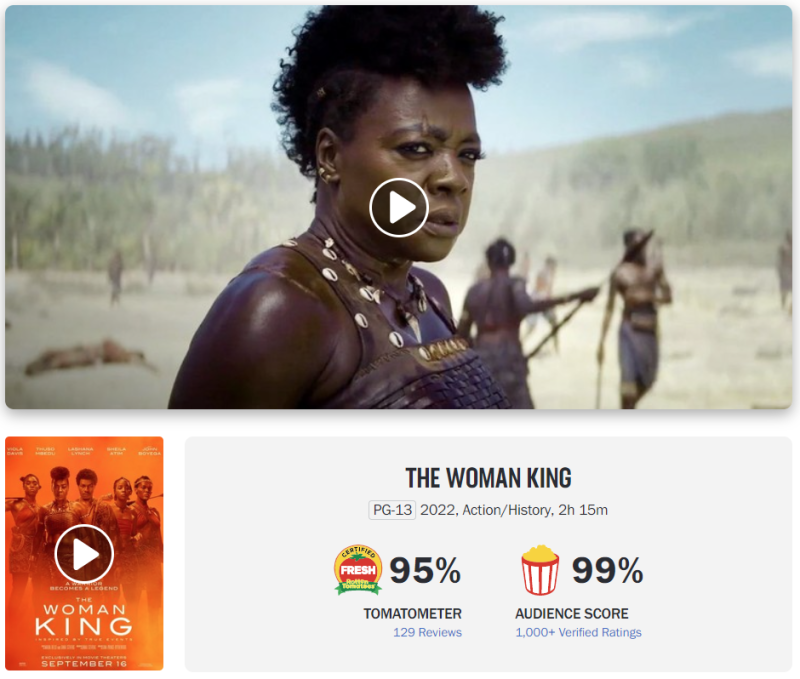The Woman King is the remarkable story of the Agojie, the all-female unit of warriors who protected the African Kingdom of Dahomey in the 1800s with skills and a fierceness unlike anything the world has ever seen. Inspired by true events, The Woman King follows the emotionally epic journey of General Nanisca (Oscar®-winner Viola Davis) as she trains the next generation of recruits and readies them for battle against an enemy determined to destroy their way of life. Some things are worth fighting for….
Rotten Tomatoes
Both domestic slavery and the Atlantic slave trade were important to the economy of Dahomey. Men, women, and children captured by Dahomey in wars and slave raids were sold to European slave traders in exchange for various goods such as rifles, gunpowder, textiles, cowry shells, and alcohol. …
Wikipedia
Other war captives who were not intended to be sold to Europeans remained in Dahomey as slaves. There, they worked on royal plantations that supplied food for the army and royal court, and they were reserved for human sacrifice in the Annual Customs of Dahomey.
Historically, Dahomey was a kingdom that conquered other African states and enslaved their citizens to sell in the Atlantic slave trade, and most of the kingdom’s wealth was derived from slavery. The Agojie had a history of participating in slave raiding, and that slavery in Dahomey persisted after the British Empire stopped Dahomey from continuing in the Atlantic slave trade.
Wikipedia

